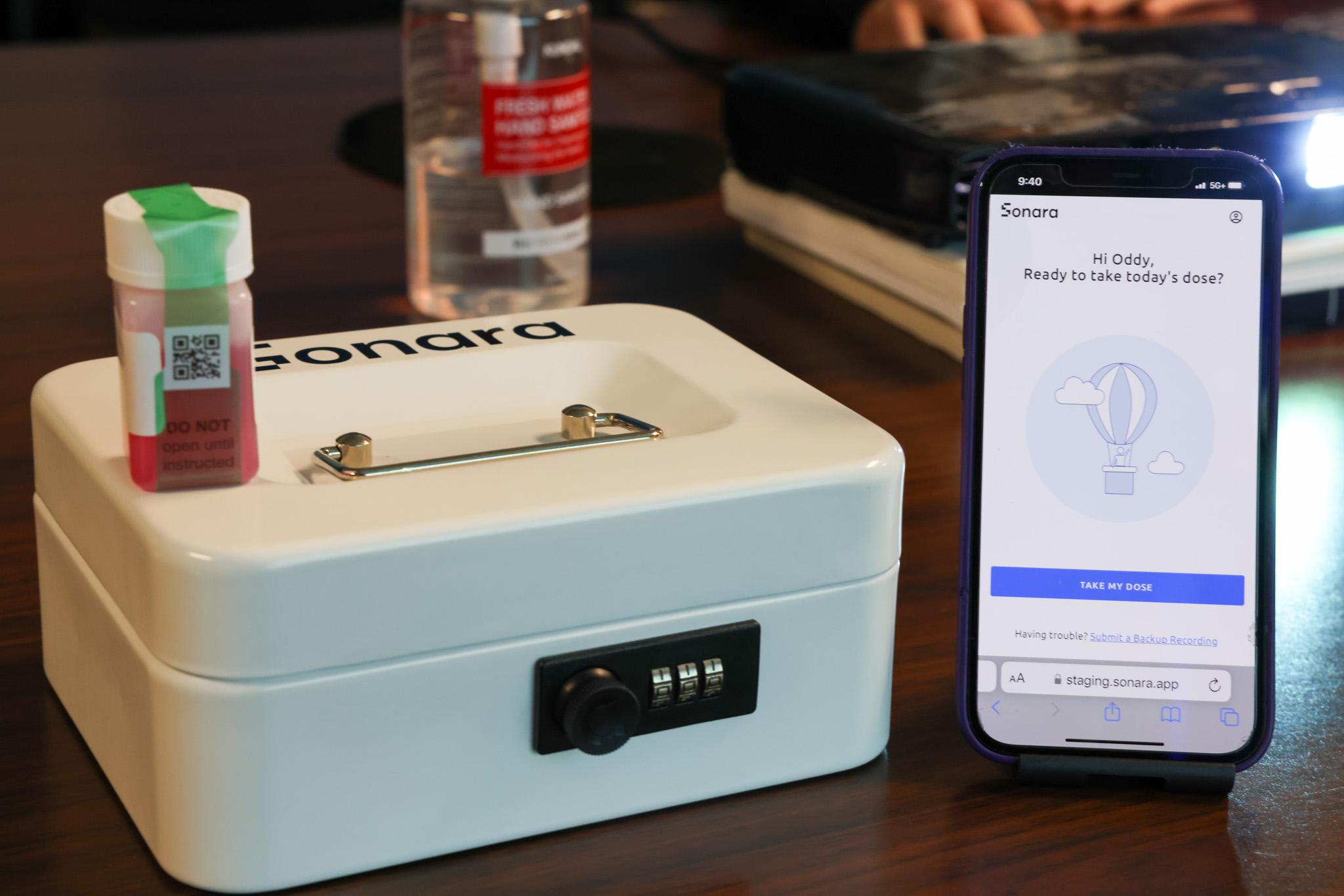A startup seeking to open up access to methadone treatment for recovering opioid users is off to a promising start at one addiction recovery clinic in San Francisco’s Civic Center neighborhood.
The federal government has long mandated that many methadone patients receive their doses under in-person medical supervision, requiring patients to travel daily to a clinic to take their dose. A new technology, called Sonara, launched in February at the Bay Area Addiction Research and Treatment (BAART) Clinic at 7th and Market Streets and allows patients to take home up to a month’s worth of doses as long as they check in virtually to self-administer them.
The technology is a potential workaround for patients in the early stages of addiction recovery for whom traveling every day to a clinic is a burden.
“We would call [methadone] liquid handcuffs because you can’t leave town, you can’t go anywhere and you can’t do nothing,” said a patient who went by Theresa, a former heroin user who went to the BAART clinic every day for over four years. “It’s been really helpful to not have to come every day.”
Theresa said the technology has allowed her to spend more time looking for an apartment and opened up the possibility of returning to school to earn her bachelor’s degree.
The software is accessible from a phone app or web browser and allows patients to videotape themselves taking their daily dose of methadone, while a human clinician on the other side ensures the patient is complying with their treatment plan.
The technology itself is fairly simple, but the innovation lies in building trust between clinicians and their patients, said Mark McGovern, an implementation researcher at Stanford University.
McGovern said that the pandemic created a “perfect storm” that combined a growing trend in medicine to include patients in shaping their own treatment plan with a relaxation of federal regulations.
“The rules that have been established were probably for good reason originally,” McGovern said. “But I think over time, and certainly with Covid, there’s been increased realization that some of these rules have been overly rigidified.”
Since launching at the BAART clinic, Sonara has expanded to eight other treatment programs across the country. It received early backing from Mark Cuban and has raised over $5 million in funding.
“I think Sonara can have a major impact on this problem and I wanted to be a small part of it. That simple,” said Cuban in a statement.
While the city has expanded access to weaker and less tightly regulated treatments such as buprenorphine and suboxone, methadone—an opiate that is used to combat withdrawals for fentanyl and heroin users—has remained difficult to access for some people seeking recovery.
Some clinics have reported staffing shortages, forcing them to turn patients away. In the case of BAART, clinic director Kris Prasad said that the surrounding open-air drug market creates a treacherous path to the front door for people seeking treatment.
Many of the services for people suffering from drug addiction are centered in the Tenderloin and South of Market neighborhoods, which have historically struggled with open-air drug use and sales.
“Dealers are omnipresent; they actually do prey on our patients,” Prasad said. “For people who are starting treatment, it’s so important to offer as many tools as possible early on.”
The city has struggled with navigating federal and state restrictions to provide accessible treatment for people hoping to recover from drug addiction. Despite maintaining a longtime policy goal of providing “treatment on demand,” the city’s health department is falling well short of that aspiration.
Sonara Health CEO Michael Giles said he was initially “taken aback” by drug use on the street surrounding the BAART clinic, but that the product brought good results even with patients facing unstable circumstances.
Though, McGovern noted, that the positive feedback so far is based on qualitative data and that the first round of retention data is yet to be released.
“I was like, okay, so we’re launching in an area that clearly is one of the worst, if not the worst places, in the United States in terms of socio-economic instability of the patients,” Giles said. “Despite how unstable the environment outside the clinic is, these patients still did really well.”
